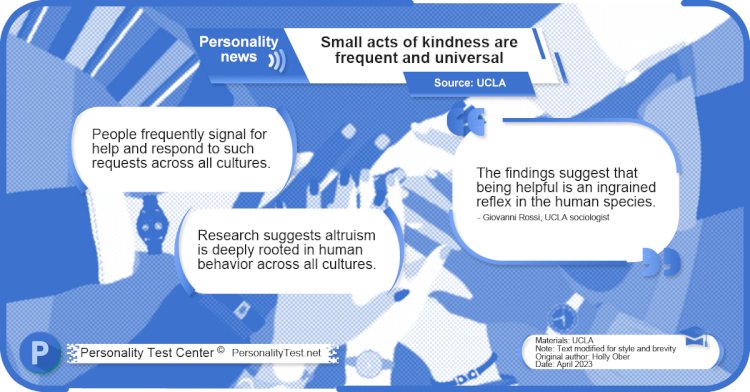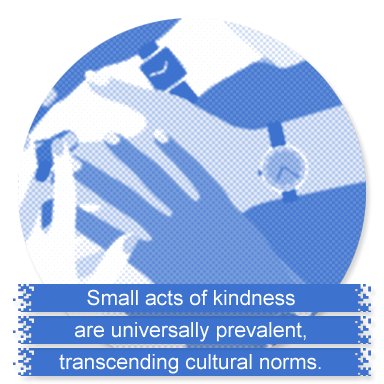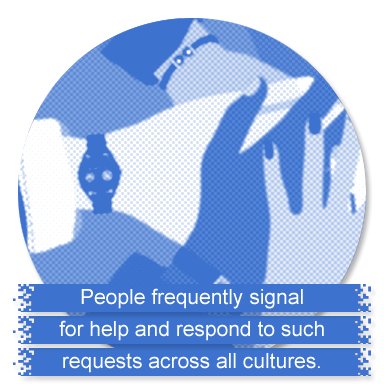Small acts of kindness are frequent and universal
Discovering the universality of human kindness and cooperation across cultures.

Summary
A comprehensive international study led by UCLA sociologist Giovanni Rossi has discovered that small acts of kindness are universally prevalent, transcending cultural boundaries.

Introduction
Published in Scientific Reports, the study involved researchers from Australia, Ecuador, Germany, the Netherlands, and the U.K., investigating the human capacity for cooperation. It found that people routinely request help and respond to these requests across all cultures.
Main points
- Analysis of over 40 hours of video recordings from culturally diverse sites revealed the frequency of small requests for help.
- People comply with small requests far more often than they decline or ignore them. On average, 79% complied, while 10% rejected and 11% ignored.
- This tendency for compliance holds regardless of cultural differences or whether interactions are among family or non-family members.
- When declining to help, people tend to provide an explanation, suggesting that help is given unconditionally, but is declined only for a good reason.

Conclusion
The research reveals that being helpful is an inherent part of human nature. Cultural differences play a role in high-cost exchanges or special occasions, but on a micro-level, the human tendency to give help becomes universally apparent.
Primary perspectives
"While cultural variation comes into play for special occasions and high-cost exchange, when we zoom in on the micro level of social interaction, cultural difference mostly goes away, and our species’ tendency to give help when needed becomes universally visible.” - Giovanni Rossi, UCLA sociologist
Source and credits
Materials: UCLA
Original author: Holly Ober
Note: text modified for style and brevity
Date: April 2023
Research reference
Scientific Reports, 2023; 13 (1) DOI: 10.1038/s41598-023-30580-5

 vneo
vneo 











